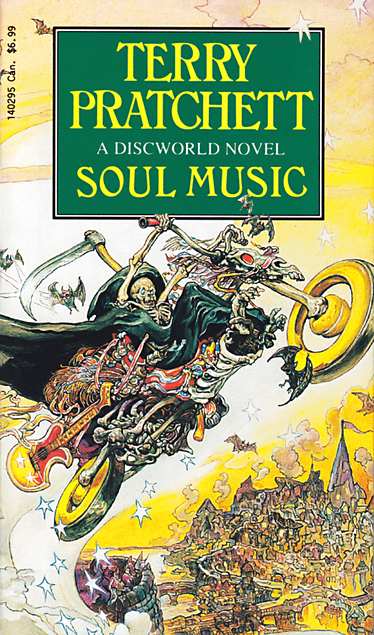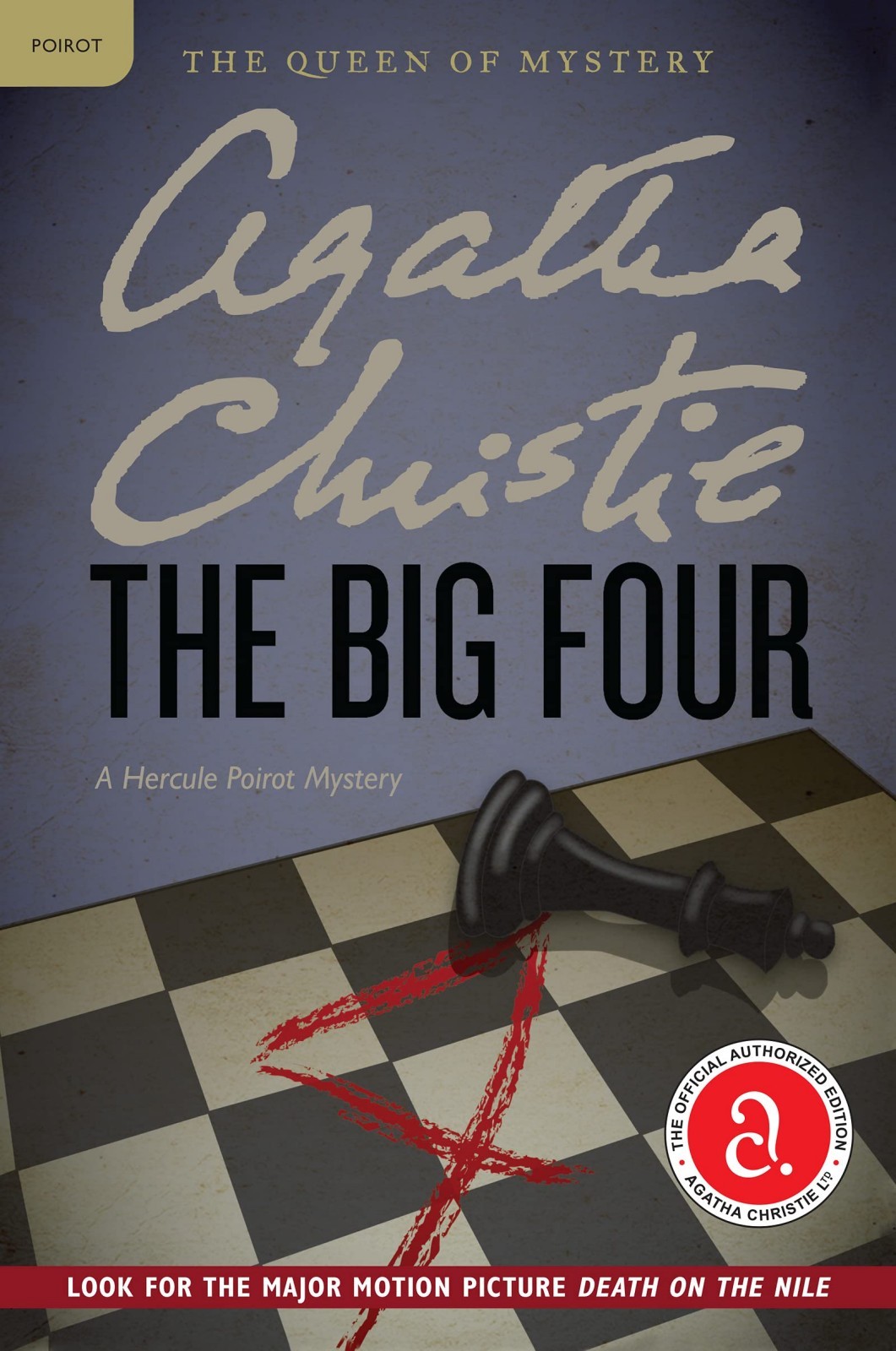Soul Music (Discworld, #16; Death, #3)
Title: Soul Music (Discworld, #16; Death, #3)

Author: Terry Pratchett
Published in: 1994
Date read: 4th March 2008
Score: 4/5
Genre: Fantasy, Comedy
Plot: (Warning, may contain spoilers):
"Soul Music" by Terry Pratchett, published in 1994, is the 16th Discworld novel and the second featuring the character of Death as a primary protagonist, following "Reaper Man." It's a vibrant and witty satire on the irresistible rise of popular music, fame, youth rebellion, and the transformative power of art, all played out on the Discworld.
The story begins with Death himself experiencing a mid-life crisis of sorts after the events of "Reaper Man." He tries to understand humanity more deeply, leading him to occasionally take on the role of his granddaughter, Susan Sto Helit, a sensible and pragmatic governess.
Meanwhile, a mysterious and incredibly powerful new form of music emerges on the Discworld: Music With Rocks In (which is explicitly rock and roll, complete with electric guitars, screaming fans, and rebellious attitudes). This music possesses a strange, almost magical compulsion, captivating anyone who hears it and driving them to wild, uninhibited behaviour.
A young man named Imp y Celyn (literally "Bud of the Holly" – a Welsh name that puns on Buddy Holly), a struggling bard from Llamedos, forms a band with two other musicians, the troll Lias Bluestone (a drummer) and the dwarf Glod Glodsson (a bass player). They quickly become sensationally popular, performing music that literally consumes the souls of its listeners and performers, feeding off the raw energy of creation and adoration.
The music, or rather the entity behind it, has a peculiar effect: it draws its practitioners into a cycle of intense fame, rapid burnout, and often tragic, early deaths – a clear parallel to real-world rock star myths. This catches Death's attention, as the music seems to be creating new rules for mortality, especially for its most talented performers.
As Imp's band rises to unprecedented stardom, Death realizes that this "Music With Rocks In" is not merely entertainment; it's a sentient, elemental force, a kind of primal song of the universe, and it has a profound and dangerous influence on reality itself, particularly on the life-timer of its most devoted players.
The novel is filled with classic Pratchett humour, witty anachronisms, and clever references to music history and tropes. It explores themes of youth rebellion, the allure and dangers of fame, the nature of creativity, and the irresistible force of cultural change. The climax sees Death, with the help of Susan, intervening to confront the raw power of the Music With Rocks In, attempting to restore balance to the Discworld's natural order and save Imp before he becomes another tragic legend.
Comments:
I know that I enjoyed it but I am currently struggling to remember much more about it than is present in the plot sumary already.
Books that we've read by Terry Pratchett (39):
The Colour of Magic (Discworld, #1; Rincewind, #1) (1983), The Light Fantastic (Discworld, #2; Rincewind, #2) (1986), Equal Rites (Discworld, #3; Witches, #1) (1987), Mort (Discworld, #4; Death, #1) (1987), Sourcery (Discworld, #5; Rincewind, #3) (1988), Wyrd Sisters (Discworld, #6; Witches, #2) (1988), Guards! Guards! (Discworld, #8; City Watch, #1) (1989), Pyramids (Discworld, #7) (1989), Eric (Discworld, #9; Rincewind, #4) (1990), Moving Pictures (Discworld, #10; Industrial Revolution, #1) (1990), Witches Abroad (Discworld, #12; Witches, #3) (1991), Reaper Man (Discworld, #11; Death, #2) (1991), Small Gods (Discworld, #13) (1992), Lords and Ladies (Discworld, #14; Witches, #4) (1992), Men at Arms (Discworld, #15; City Watch, #2) (1993), Soul Music (Discworld, #16; Death, #3) (1994), Interesting Times (Discworld, #17; Rincewind, #5) (1994), Maskerade (Discworld, #18; Witches, #5) (1995), Feet of Clay (Discworld, #19; City Watch, #3) (1996), Hogfather (Discworld, #20; Death, #4) (1996), Jingo (Discworld, #21; City Watch, #4) (1997), Carpe Jugulum (Discworld, #23; Witches, #6) (1998), The Last Continent (Discworld, #22; Rincewind, #6) (1998), The Fifth Elephant (Discworld, #24; City Watch, #5) (1999), The Truth (Discworld, #25) (2000), The Last Hero (Discworld, #27; Rincewind, #7) (2001), Thief of Time (Discworld, #26; Death, #5) (2001), Night Watch (Discworld, #29; City Watch, #6) (2002), The Wee Free Men (Discworld, #30; Tiffany Aching, #1) (2003), Monstrous Regiment (Discworld, #31; Industrial Revolution, #3) (2003), A Hat Full of Sky (Discworld, #32; Tiffany Aching, #2) (2004), Going Postal (Discworld, #33; Moist von Lipwig, #1) (2004), Thud! (Discworld, #34; City Watch, #7) (2005), Wintersmith (Discworld, #35; Tiffany Aching, #3) (2006), Making Money (Discworld, #36; Moist Von Lipwig, #2) (2007), Unseen Academicals (Discworld, #37; Rincewind, #8) (2009), I Shall Wear Midnight (Discworld, #38; Tiffany Aching, #4) (2010), Snuff (Discworld, #39; City Watch, #8) (2011), Raising Steam (Discworld, #40; Moist von Lipwig, #3) (2013)
This page was updated on: 6th August 2025

